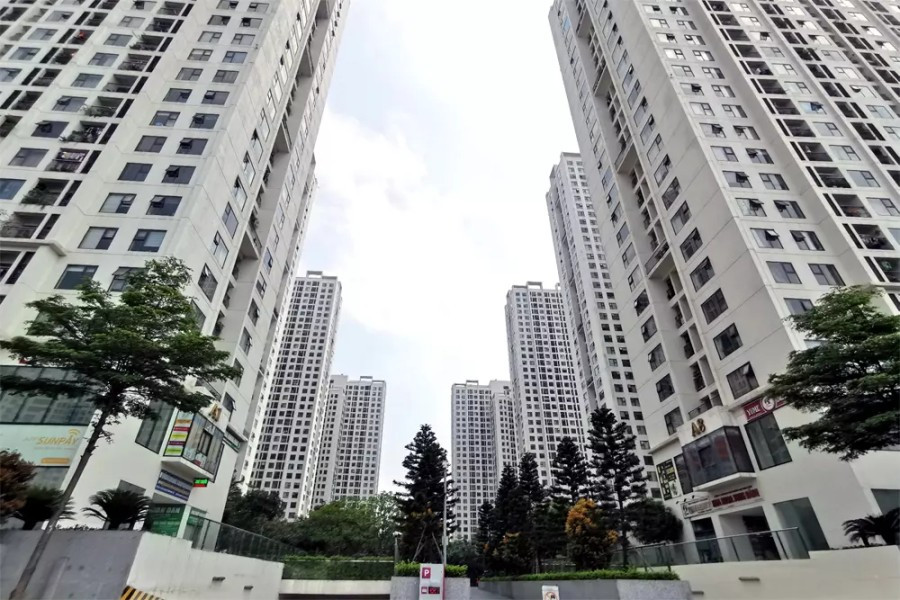
In 2018, Phuong Linh, 31, from Thu Duc City in HCM City borrowed VND800 million from a bank to buy an apartment. She planned to pay by installment within 15 years, or VND10 million a month in both principal and interest.
For Linh, apartments are valuable assets which will transferred from generation to generation, so she was worried when hearing that MOC had proposed a limit on apartment ownership.
Under the proposal, when the ownership term ends, apartment owners no longer own the asset, and the apartment buildings will be destroyed or used for other purposes.
“This is like completely losing assets for which we saved money for years,” Linh said
Pham Thanh Quang in Hanoi told VietNamNet that he doesn’t support the proposal on setting a cap on ownership term.
“You work hard to make money to buy an apartment, and then when you get old, you become homeless as your apartment will no longer belong to you,” he said.
Owning an accommodation is the dream of millions of Vietnamese. Linh and Quang like others don’t want to accept the fact that the accommodation they buy at sky-high prices will no longer be theirs one day.
Regarding prices, Le Hoang Chau, chair of the HCM City Real Estate Association (HOREA), said affordable houses accounted for only 1 percent of the real estate supply in HCM City in 2020.
In 2021, 76 percent of the supply was high-end products, while the remaining was mid-end, which meant there were virtually no affordable products.
Chau said it would be better not to limit the ownership time for apartments. Houses are valuable assets that Vietnamese want to transfer to their children and grandchildren. Also, it would be better not to cause fluctuations in the real estate market with new regulations.
Dang Hung Vo, former Deputy Minister of Natural Resources and the Environment, a respected land expert, said if the time for owning apartments is limited, people will only buy houses built on building land. They would rather buy small houses with poor equipment than modern equipment with a limited ownership term.
Vietnamese believe that every family is a cell of society and children need support from parents. Many people live in the house left by parents. A normal office worker has to save money for many years to be able to buy a house.
“Don’t do the things that make people become afraid of apartments. The bad thing is that this will lead to a reduction in apartment market share. Instead of apartments, people will only buy small land plots to build houses. This will affect the organization of modern urban space,” Vo warned.
What does MOC say?
The Housing and Real Estate Market Management Agency of the Ministry of Construction said the ministry has proposed two options and received approval. The Government will report to the National Assembly to add the issue to the NA’s law building program in 2023.
With Option 1, the apartment ownership time will be determined based on the lifespan of construction works in accordance with the laws on construction.
When the lifespan of apartments ends, or when the apartment buildings degrade, appropriate agencies will have the right to inspect the buildings and give assessment about quality. If the buildings still can be used, they will allow people to continue to use them. If not, the buildings may threaten people’s lives and assets, and they will seek to demolish the apartments for re-building.
As such, when the life circle of apartments ends (apartments are demolished), the ownership of the apartments will terminate as the assets no longer exist.
MOC said this aims to ensure residents' safety.
At present, it is very difficult to destroy old apartments for rebuilding though they have degraded seriously and threaten people’s lives. Many people believe that only the owners of apartments have the right to destroy apartments for re-building because the apartment ownership is permanent.
With Option 2, the apartment ownership term will be determined by considering the time of land-use rights in accordance with the land laws.
The 2013 Land Law is being considered for amendment and supplement.
Tran Chung